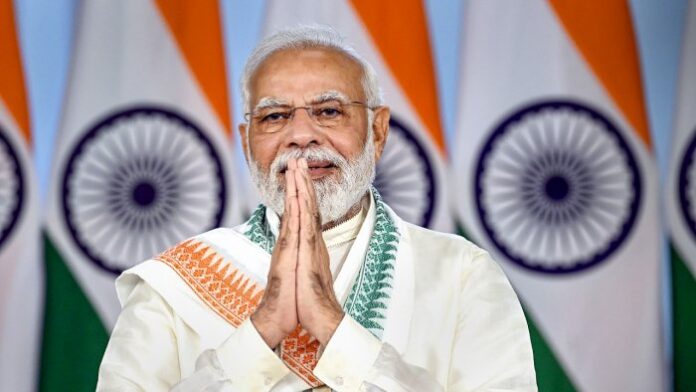Tamil Nadu Chief Minister M.K. Stalin has reached out to Union Home Minister Amit Shah, seeking his intervention to persuade Gujarat-based milk cooperative Amul to refrain from procuring milk from Tamil Nadu’s cooperative Aavin. Stalin argues that such procurement activities would lead to detrimental competition and goes against the principle of allowing cooperatives to flourish without encroaching on each other’s milk shed areas.
This request comes in the wake of the Congress party’s accusations against the Bharatiya Janata Party (BJP) of attempting to stifle Nandini, Karnataka’s milk cooperative, prior to the state’s recent elections. Shah, who hails from Gujarat and serves as the Cooperation Minister, had highlighted the collaboration between various milk cooperatives. However, the Congress emerged victorious in Karnataka.
In his letter to Shah, Stalin points out that Amul had previously only sold its products through outlets in Tamil Nadu. However, it has recently come to their attention that the Gujarat-based cooperative has leveraged its multi-state license to establish chilling centers and a processing plant in Krishnagiri district. Additionally, Amul intends to procure milk from regions surrounding Tamil Nadu‘s Krishnagiri, Dharmapuri, Vellore, Ranipet, Tirupathur, Kancheepuram, and Tiruvallur districts.
Stalin Appeals to Shah: Amul Urged to Cease Milk Procurement in Tamil Nadu, Citing Unhealthy Competition
Stalin emphasizes that it has long been a norm in India to allow cooperatives to thrive without encroaching on each other’s milk shed areas. Such cross-procurement activities run counter to the spirit of Operation White Flood, a project launched in 1970 that successfully transformed India into the largest milk producer from a previously milk-deficient nation of shah.
The Chief Minister expresses concerns about the adverse impact on consumers, especially considering the prevailing milk shortage in the country. He asserts that Amul’s actions infringe upon Aavin’s established milk shed area, which has been nurtured through genuine cooperative efforts over the course of several decades.
Stalin highlights the pivotal role played by regional cooperatives in the development of the dairy sector in each state. These cooperatives are better equipped to engage and support milk producers while safeguarding consumers against arbitrary price hikes. He urgently requests Shah’s intervention to direct Amul to immediately cease milk procurement from Aavin’s milk shed area in Tamil Nadu.
Stalin underscores the significance of Aavin, a cooperative owned by the Tamil Nadu Cooperative Milk Producers Federation Limited and the state government, as the foundation of dairy development in the region. He mentions that Aavin operates 9,673 milk producers’ cooperative societies, benefitting both rural milk producers and consumers. With around 4.5 lakh pouring members, these societies procure 35 LLPD of milk. This arrangement ensures that milk producers receive remunerative and uniform prices throughout the year.
The Chief Minister highlights the comprehensive support provided by Aavin to milk producers, including cattle feed, fodder, mineral mixtures, animal healthcare, and breeding services. Furthermore, Aavin ensures the supply of quality milk and milk products to consumers at affordable prices, making a significant contribution to the livelihood of rural milk producers and meeting the nutritional needs of consumers.
In his plea to Shah, Stalin reiterates the importance of upholding cooperative principles and urges Amul to refrain from encroaching upon Aavin’s milk shed area. He emphasizes the need to protect the interests of both milk producers and consumers, maintaining a harmonious cooperative environment that benefits all stakeholders involved.
Stalin’s appeal to Union Home Minister Amit Shah regarding the Amul-Aavin milk procurement issue highlights the significance of cooperative principles in the dairy industry. Stalin argues that allowing Amul to procure milk from Aavin’s milk shed areas in Tamil Nadu would create unhealthy competition, which goes against the spirit of cooperative development.
Stalin’s plea to Shah: Amul urged to halt milk procurement in Tamil Nadu, citing concerns of unhealthy competition
The Chief Minister draws attention to the recent controversy surrounding Nandini, Karnataka’s milk cooperative, during the state’s elections. The Congress party accused the BJP of attempting to suppress Nandini, emphasizing the importance of maintaining cooperative harmony in the milk industry. Despite these allegations, the Congress emerged victorious in Karnataka, underscoring the public’s support for cooperative models.
Stalin’s letter to Shah raises concerns about Amul’s expansion into Tamil Nadu. Previously, Amul had only sold its products through outlets in the state. However, it has now utilized its multi-state license to establish chilling centers and a processing plant in Krishnagiri district. Additionally, Amul plans to procure milk from several districts surrounding Krishnagiri.
Stalin emphasizes that cooperative norms in India dictate that milk shed areas should be respected, allowing cooperatives to thrive without infringing on each other’s territories. This principle is rooted in Operation White Flood, a transformative project launched in 1970 that led India to become the largest milk producer in the world. Stalin argues that Amul’s cross-procurement activities in Aavin’s milk shed areas deviate from this cooperative ethos.
One of the main concerns expressed by Stalin is the impact of Amul’s actions on consumers, particularly in light of the prevailing milk shortage in the country. He asserts that Amul’s entry into Aavin’s milk shed areas would exacerbate the challenges faced by consumers. Stalin argues that Aavin has diligently nurtured its milk shed areas over the years, creating a cooperative spirit that benefits both milk producers and consumers.
Stalin highlights the vital role played by regional cooperatives like Aavin in dairy development. These cooperatives are better equipped to engage with and support milk producers, ensuring fair remuneration and shielding consumers from arbitrary price hikes. He urges Shah to intervene urgently and direct Amul to cease milk procurement from Aavin’s milk shed areas in Tamil Nadu.
Aavin, which is owned by the Tamil Nadu Cooperative Milk Producers Federation Limited and the state government, operates numerous milk producers’ cooperative societies. These societies, consisting of around 4.5 lakh pouring members, procure 35 LLPD of milk. This arrangement guarantees milk producers stable and uniform prices throughout the year.

